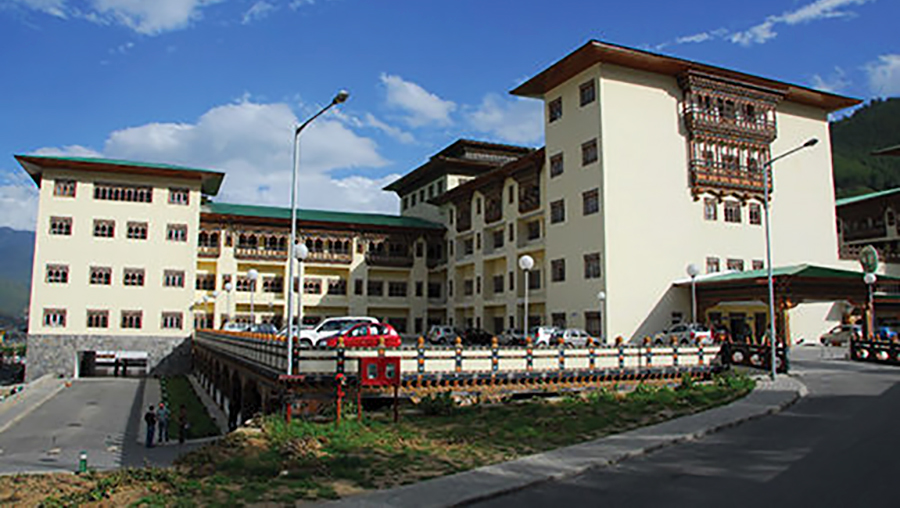
At the National Referral Hospital in Thimphu, a child with Down Syndrome is born every month. Down syndrome is a health condition when a child is born with an extra chromosome. Chromosomes tell the body how to develop. According to health experts, Down syndrome is a lifelong condition and cannot be cured with medication or surgery. However, parents and caregivers can learn to manage the growth and development of their child if they visit the hospital on time for follow-up. However, this is challenging for caregivers and parents living in areas without advanced healthcare facilities. 21st March is observed as World Down Syndrome Day globally.
Dechen Pem is a mother of a 15-year-old child with Down syndrome. Every day, she accompanies her daughter to Changangkha Middle Secondary School in Thimphu along with other parents. The school has around 18 children with Down syndrome.
Doctors diagnosed her daughter with Down syndrome right after birth. However, it took her two years to understand how Down syndrome affects the growth and development of a child. It was only then that she started visiting doctors at the National Referral Hospital for timely follow-up.
Doctors say timely follow-up is crucial as the developmental needs of children with Down syndrome are different.
“After we screen the child and detect all these medical conditions, we need to manage them. And based on all the conditions that are detected, we keep on managing. If a child is lagging in developmental milestones, we send them for physiotherapy, sometimes occupational therapy, and speech therapy, the facilities that are available in Jigme Dorji Wangchuck National Referral Hospital and a few regional hospitals. However, the majority of the time, we have to relocate the whole family to a nearby hospital, which has these facilities,” said Dr Dinesh Pradhan, a neonatologist at the Jigme Dorji Wangchuck National Referral Hospital.
Although visiting hospitals for follow-up is not an issue for parents and caregivers residing in Thimphu or near the regional referral hospitals, those in the rural areas often fail to visit health experts on time.
Dr Dinesh added that children with Down syndrome can be detected through screening before and after birth. However, screening before birth plays a critical role in preparing the parents to learn about the condition of their child.
Elsewhere in the world, pre-screening for Down syndrome is done so that parents may decide to keep the infant or not.
In addition, the doctor also said that women conceiving after 35 years are at a higher risk of giving birth to infants with Down syndrome.
“Down syndrome is not caused by any medications or medical conditions of the mother per se, the risk is mostly to do with the mother’s age. So, as the mother’s age progresses, the risk of having a baby with Down syndrome increases. For example, in a 20-year-old mother, the risk of having a Down syndrome baby is as less as one in a couple of thousands, one or two thousand. But for mothers at 35 years of age, the risk is one in every 250 babies. At 45 years, the risk is as much as one in 20 babies. So, the mother’s age happens to be the single most risk factor in having a baby with Down syndrome,” added Dr Dinesh Pradhan.
Meanwhile, parents of children with Down syndrome say, that to make matters worse, they find it challenging when others behave strangely around their child.
“Our children cannot understand or read faster. They take a lot of time to read, so I am often worried about it. When it comes to life skills, they have a lot to learn, so that is why until the day we die, we worry how they will be able to learn to survive on their own as they take time to learn,” said Dechen Pem, a mother.
For Dechen, her daughter was born with a heart disease and always took a longer time to learn compared to other children without Down syndrome.
According to doctors, almost 50 per cent of children with Down syndrome have some form of heart disease. They may also have other physical problems such as low immunity or breathing problems and hearing and eyesight issues.
Some may also have autism, intellectual disability, Attention Deficit Hyperactivity Disorder, or behavioural issues. The life expectancy of individuals with Down syndrome, according to doctors, is usually up to 60 years on average.
Singye Dema
Edited by Phub Gyem









